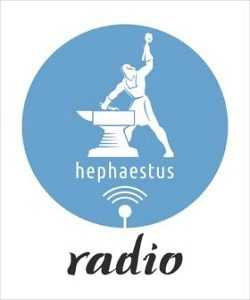Ministers are discussing launching a public information campaign to encourage households to reduce their energy use this winter as fears grow over winter blackouts.
Households could be asked to turn their thermostats down and use their dishwashers and washing machines during the night and at times when energy demand is lower, under plans being discussed between the business department, energy companies and the network operator National Grid.
That system notifies consumers when it detects an outage and gives timing estimates and confirmation when the power will be restored. Under plans being discussed, consumers could be sent advice on their energy use through the service.
Sources close to the discussions said that government officials and industry executives are determined to avoid blackouts disrupting the supply of energy to Britons’ homes. A public information campaign could help ease pressure on energy supplies during the winter.
Ministers have so far resisted calls to tell consumers to cut their energy use, saying consumption of gas and electricity is a “decision for individuals”.
Ofgem, the energy regulator, has said there was a “significant risk” of gas shortages this winter because of the war in Ukraine, which has resulted in a dash for gas stocks in Europe before winter.
National Grid is examining a series of measures to prevent power shortages this winter. Earlier this year, Octopus Energy ran a trial that gave consumers a day’s notice to cut their usage during a peak period in return for payments. National Grid hopes to extend that service, but suppliers have suggested the payments may be too low.
National Grid will lay out its outlook for winter energy supplies on Thursday, giving the first comprehensive assessment of the risk of blackouts this winter.
The eagerly awaited document should show how resilient Britain’s energy supplies are over the coming months. An early view, published in August, showed the UK should be able to meet its energy demand in the coming months. However, since then Norway has indicated it may prioritise supplying its domestic market over exporting power.
National Grid has doubled the length of its annual emergency gas shortage drill from two to four days this year.
Government analysis has predicted Britain could experience power cuts for four days in January if there were gas shortages and the weather was particularly severe.
Although European countries have made good progress in filling up gas storage facilities and reducing consumption, there are concerns over supplies and high prices through next year. Last week, the Nord Stream Russian gas pipelines under the Baltic Sea were damaged, with Russian sabotage suspected.
European governments have attempted to cut consumption through various methods, including banning hot showers in parts of Germany, and ministers in France wearing warm clothes to send a message to consumers.
A UK industry source said: “The government has resisted telling consumers what to do up to now but they’ve looked at what is happening in Europe and decided to be more cautious. There is still a debate over who is best to offer guidance to households – government, suppliers or network operators.”
However, any messaging campaign will jar with the prime minister, Liz Truss’s, libertarian principles, and her insistence at the Conservative party conference: “I’m not going to tell you how to live your life”.
Asked during the leadership campaign, when asked whether she would rule out energy rationing, Truss said: “I do rule that out. Yes.”
A full-scale campaign could involve spending some of the £930m advertising spending budget that Truss has earmarked to use in the run-up to the next general election.
The UK is far less reliant than some European countries on Russian gas but the scramble for supplies caused by the war in Ukraine has threatened to have a knock-on effect on supplies into Britain.
Jacob Rees-Mogg, the business sectretary, is reportedly negotiating deals with two gas exporting countries, Qatar and Norway, over long-term supply contracts that would commit the UK to buying gas in large quantities at an agreed price for more than a decade. That is likely to spark concerns that the UK’s net zero decarbonisation goals could be at risk.
The government has also signed deals with power generators, including Drax and EDF, to keep their coal-fired operations on standby this winter.
Truss caused confusion last week when she appeared to imply that households would not pay more than £2,500 a year on their energy bills, regardless of their usage. In fact, that figure relates to a typical bill for an average household.
National Grid declined to comment. The business department did not respond to a request for comment.
Source: Theguardian.com















Leave a comment